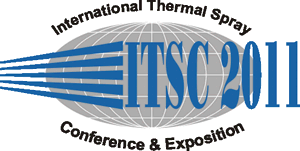| Abstract: |
Solution precursor plasma spray (SPPS) is a relatively new thermal spray process in which deposits are formed by injecting solutions of the appropriate composition directly into the plasma. The coatings consist of grains or particles as small as ~20nm , and may be very porous or nearly dense, depending on the solution and deposition parameters. Recently, the potential of SPPS to deposit fine particle size, porous coatings suitable for use as electrochemical electrodes for fuel cells and gas sensors has been demonstrated. . for and battery applications. For example, direct SPPS deposition of LiFePO4 phase instead of Li3Fe2(PO4)3 phase.
This paper describes recent efforts to deposit LiFePO4 coatings which may be of interest for Li ion battery electrodes. In this case, along with the porosity, surface area, and microstructure of the deposited coatings, crystal structure also plays an important role in determining the performance of the electrodes. Solution precursors with different solution chemistries containing lithium, iron and phosphorus ions are injected into a hydrocarbon plasma issuing from a DC-arc torch. The effects of solution chemistries on coating morphologies and phase composition were investigated. The results indicate that the porosity and crystal structure of the coatings can be tailored by selecting different solutes, additives and solvents.
|
|
